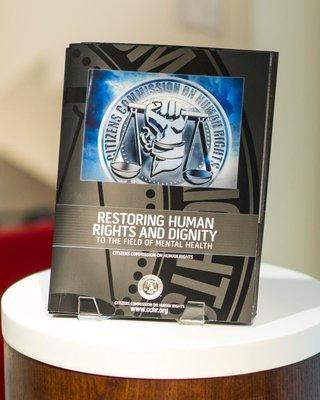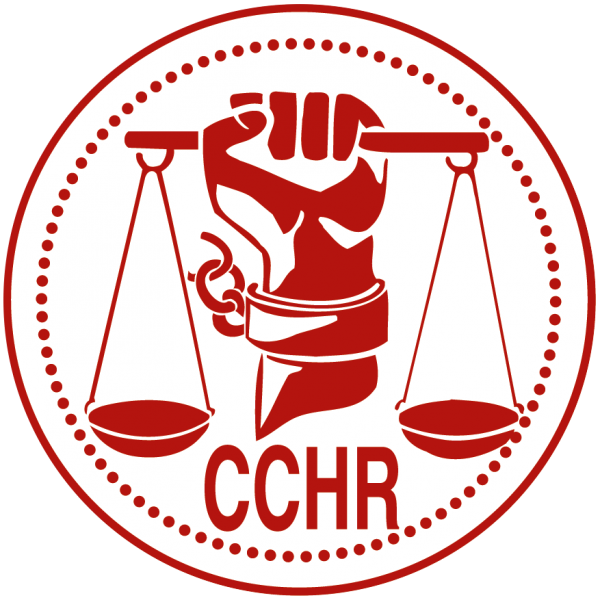Mental Health Watchdog Reflects on Almost Three Decades of Exposing Psychiatric Abuse
Starting out as a simple volunteer activity, CCHR has grown from a small group of dedicated human rights activists into a statewide movement that regularly garners newspaper and television coverage on mental health abuses.
The Florida chapter of the Citizens Commission on Human Rights (CCHR) recently celebrated its 29th year as a mental health watchdog dedicated to the protection of children and families from abuses in the mental health industry. Starting out as a simple volunteer activity in 1977, CCHR Florida became a formal chapter in 1989, growing from a small group of human rights activists into a statewide movement that regularly garners newspaper and television coverage on mental health abuses.[1]
In 29 years, CCHR Florida has created a track record of being the only non-profit resource that both educates and actively protects citizens against ongoing psychiatric abuses. As an example, the campaign to protect children from illegal Baker Acting— a statewide crisis that has resulted in 32,763 involuntary examinations initiated on children during 2016-2017— has reached over 184,000 Florida families.[2]
CCHR started the crusade to restore rights and dignity to the field of mental health in 1977 by taking the issue of consent to Tallahassee to promote a bill that would eventually result in a watershed victory for patient rights in Florida: helping to pass legislation that required informed consent before ECT (electro-convulsive therapy) could be administered to mental health patients. Prior to CCHR’s work to protect patients, those labeled as mentally ill would receive ECT treatments without their consent. ECT is the practice of sending 460 volts of electricity to a patient’s brain by use of electrodes— like what cattle receive in slaughterhouses— and has been documented to cause brain damage, long term memory loss, and death.[3] Thousands of survivors of ECT have complained of its traumatic effects on their lives, and in Texas— the only state that actually reports deaths 14 days post-ECT treatment— reported a death rate in recent years that represents an estimated 300 deaths nationally each year from ECT.[4]
In the early formative years, CCHR also instigated a statewide campaign to educate Florida’s citizens on the dangers of the drug Ritalin which has been documented to contribute to suicide, drug addiction and even early death.[5] This free public information campaign offered several alternatives to the use of Ritalin—especially useful since Ritalin began being prescribed 20 years prior to the age of the internet and there were little to no public resources on Ritalin available.[6]
Also notable was CCHR’s investigation and exposure of patient abuse at Anclote Manor Psychiatric Hospital, an inpatient mental health facility mainly for teenage boys that was located in Tarpon Springs—20 miles north of Clearwater. Anclote Manor had earned a national reputation due to judges from all over the U.S. giving troubled teenage boys two choices: face prosecution for their crime resulting in a permanent record for having committed a felony or be committed to Anclote Manor Psychiatric Hospital to receive treatment.
During the investigation CCHR exposed the abusive use of insulin shock, the wrapping of patients in freezing sheets and much more. Using public demonstrations depicting the abuses that were leaked out of Anclote Manor Psychiatric Hospital by patients and staff alike, CCHR was able to garner public attention to the truth of the hospital’s barbaric practices ultimately leading to the closure of Anclote Manor.
Protecting children is just one facet of CCHR’s push for human rights in Florida. In 1981, the widespread practice of using the mental health law to have the elderly declared "incompetent" was exposed by CCHR. At that time, and based upon a single petition from a relative, the court would order two psychiatrists to complete a surprise 5-minute interview on an unsuspecting senior at their home. In approximately 98% of the cases, the elderly person would be found incompetent by the psychiatrists, and would be stripped of any legal rights.
CCHR Florida spearheaded what became a massive investigation into this issue by helping to restore the legal competency of two senior citizens, one from Clearwater (who had been imprisoned in a locked psychiatric ward in a nursing home) and the other from Riverview. The Clearwater Sun decided to look into the abuses and the result was a 6-part series entitled “Guardianship— Protection or Prison,” which was highly critical of the entire mental health system. Once again CCHR didn’t just settled for exposing the abuse but embarked upon a public information campaign to educate seniors on their rights including the legal consequences of being declared incompetent, how to be restored to competency, uses and abuses of guardianship, and alternatives to guardianship.
Unfortunately, similar elder abuses still happen today. According to the Annual Report on the Baker Act, released in March of 2017, there were 194,354 involuntary examinations conducted under the guise of treatment in 2016— more than doubling from 2001— with 1 in 10 initiated on persons 65 years of age or older. That means that 13,800 of Florida’s elderly, including those with dementia, were sent for involuntary psychiatric examinations in 2016.
More recently, and having grown to more than 3,000 members, CCHR has helped to secure the safe release of more than 800 people from unjust Baker Acts since 2015 and is currently engaged in campaigns to stop the illegal involuntary psychiatric examination of children, to expose the deadly connection between violence, suicides and psychiatric drugs and to ban the use of electroshock therapy in Florida.
Anyone wishing to report psychiatric abuse is encouraged to contact CCHR Florida at 727-442-8820 or visit the center located at 109 N. Fort Harrison Avenue in downtown.
About CCHR: Initially established by the Church of Scientology and renowned psychiatrist Dr. Thomas Szasz in 1969, CCHR’s mission is to eradicate abuses committed under the guise of mental health and enact patient and consumer protections. L. Ron Hubbard, founder of Scientology, first brought psychiatric imprisonment to wide public notice: “Thousands and thousands are seized without process of law, every week, over the ‘free world’ tortured, castrated, killed. All in the name of ‘mental health,’” he wrote in March 1969. For more information visit, www.cchrflorida.org
Sources:
[1] https://www.nbcnews.com/news/us-news/video-shows-7-year-old-miami-boy-handcuffs-after-he-n842211
[3] http://emord.com/blawg/wp-content/uploads/2016/08/1-ECT-Citizen-Petition.pdf
[4] https://ps.psychiatryonline.org/doi/10.1176/appi.ps.52.8.1095
[5] https://www.cchrflorida.org/children-on-ritalin-long-term-effects/
[6] https://www.thefix.com/content/research-shows-ritalin-causes-long-term-brain-injury





